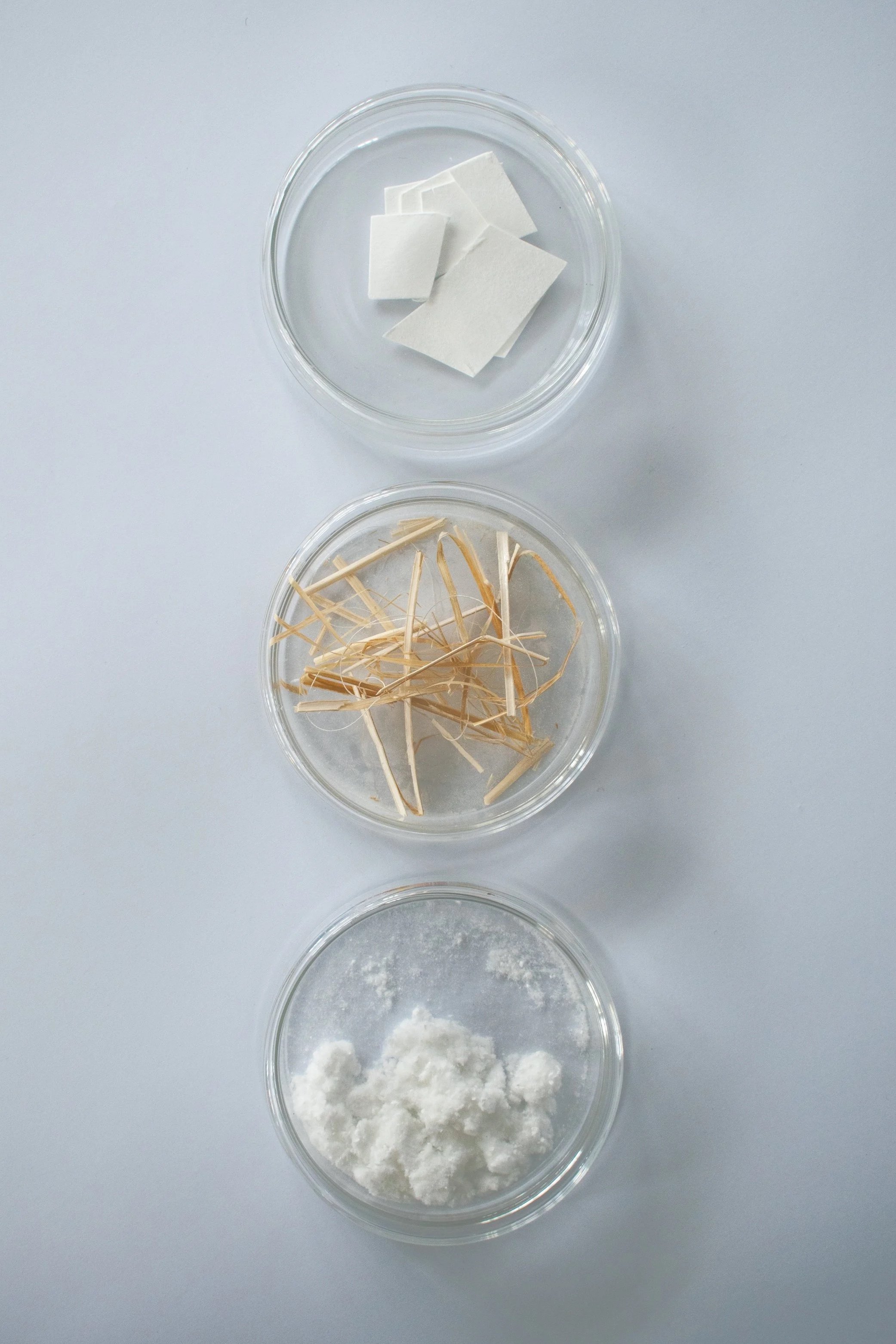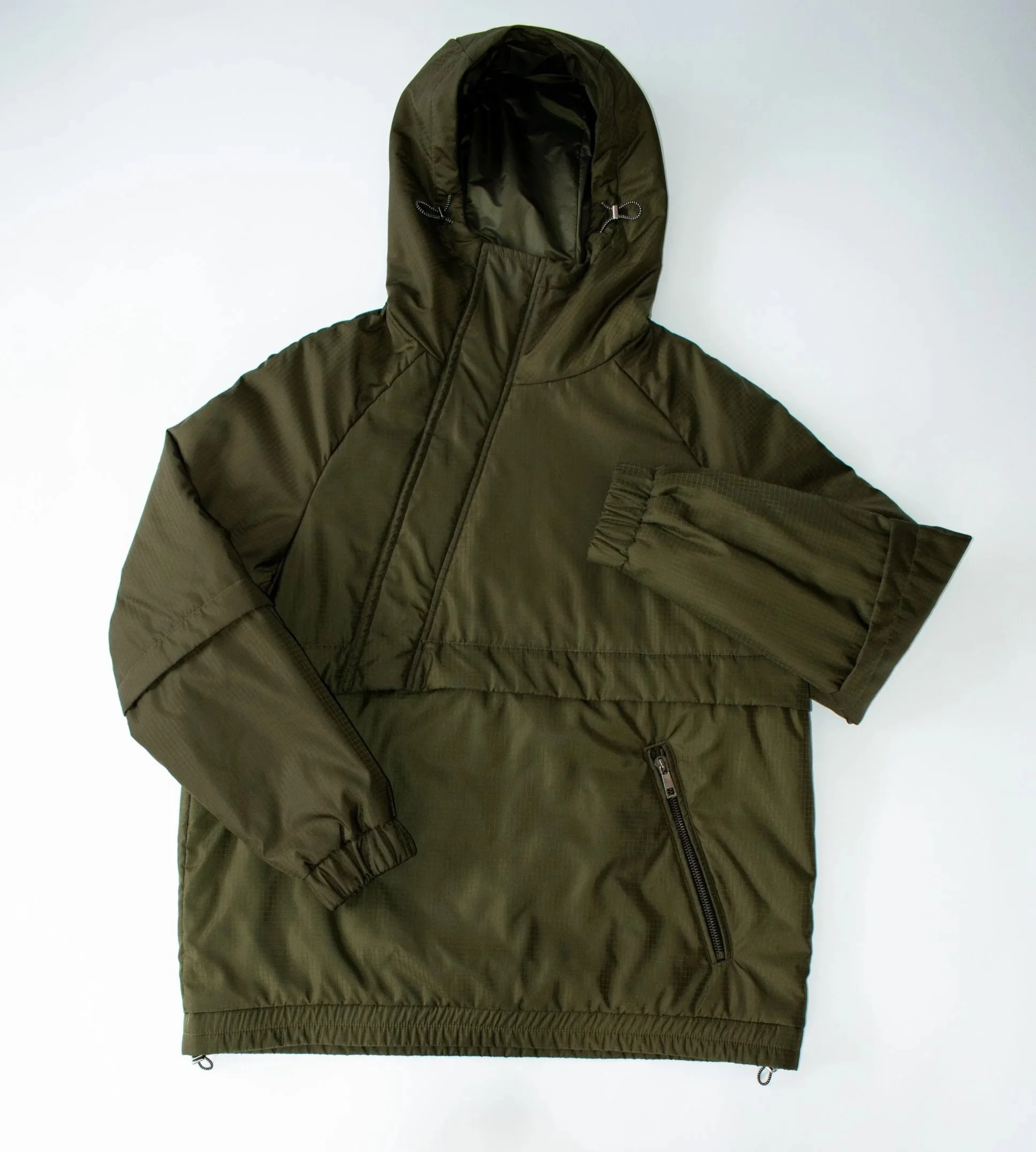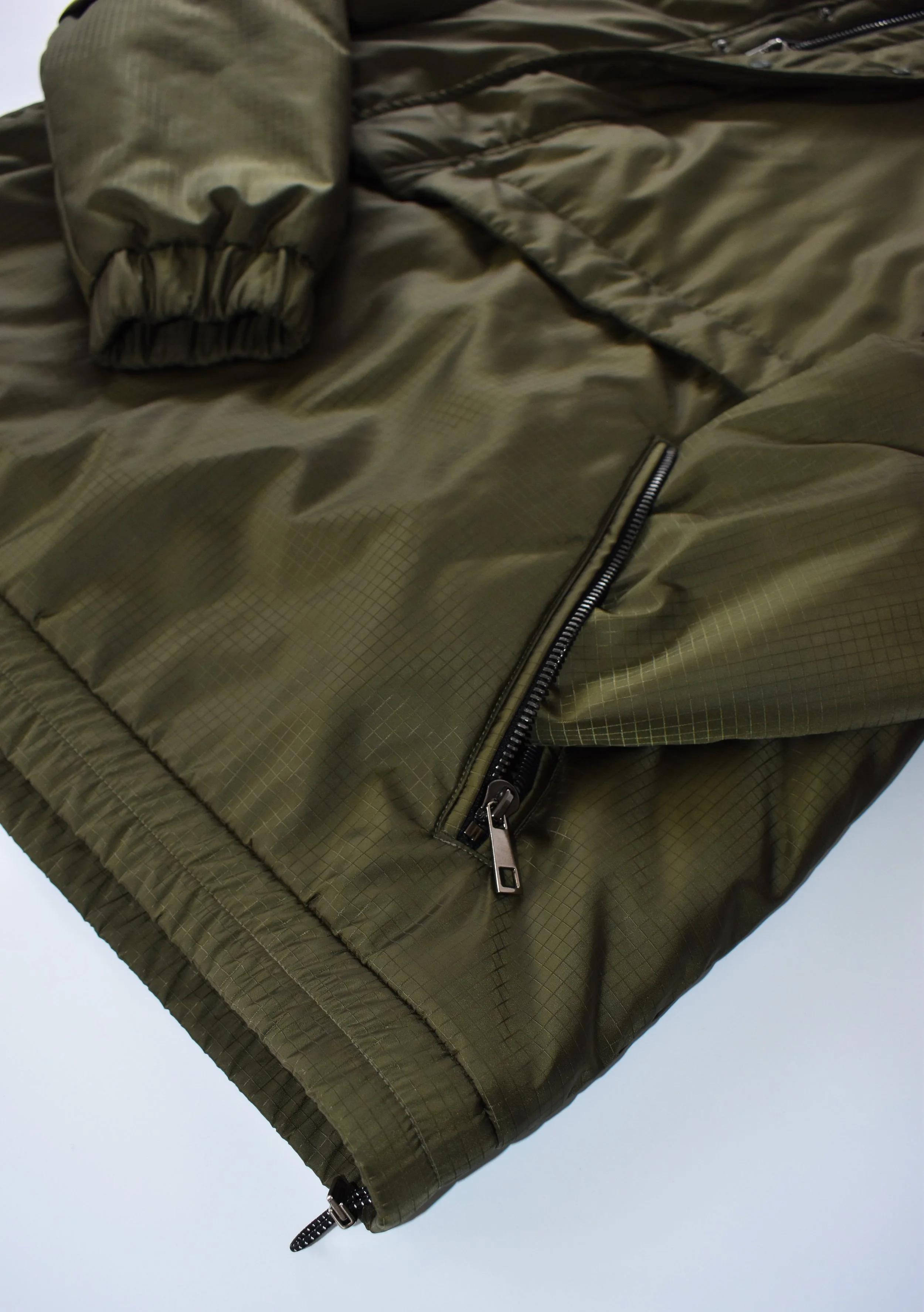IN-TRANSIT
Together with the French SME RBX Créations, FreyZein tackled two of the biggest challenges in the textile industry: Waste management and finite resources. Since 2018, RBX has been developing a range of new materials from agricultural biomass under the name Iroony®. The two innovators joined forces during the EU-funded IN-TRANSIT project, led by a common mission:
To encourage sustainable farming practices and offer resilient, low-impact alternatives so that the textile industry can shift away from petrochemical materials.
Top: Cellulose sheets
Middle: Agriwaste (Hemp stalks)
Bottom: Ground Cellulose.
The collaboration with FreyZein focussed on industrial hemp and the exploration of its by-products. As a naturally resilient plant, hemp offers benefits to both, planet, and production partners: Not only does it grow very quickly, without the need for additional irrigation or pesticides, it stores carbon (ca. 15 tons /hectare according to Interchanvre) and welcomes biodiversity while acting as a great rotation crop, leaving the soil well-structured for the following crop to which it can increase the yield.
A typical waste by-product of the hemp harvest are the stalks. While this biomass can be re-generated for the use in fibers and filaments, FreyZein used this feedstock as a base for the creation of aerocellulose - a key functional component of FreyZein’s innovative nonwoven thermal insulation material TerraDown™.
Outdoor jacket created by FreyZein for the INTRANSIT project, pioneering TerraDown with incorporated agriwaste.
Detail shot of the INTRANSIT jacket by FreyZein.
In addition to hemp, FreyZein successfully re-introduced post-consumer textile waste from shredded denim back into the supply chain by microdosing it during the creation process of aerocellulose. This marks a particularly important and exciting step, as textile to textile recycling together with true circularity remains an ongoing challenge for the entire textile industry.



